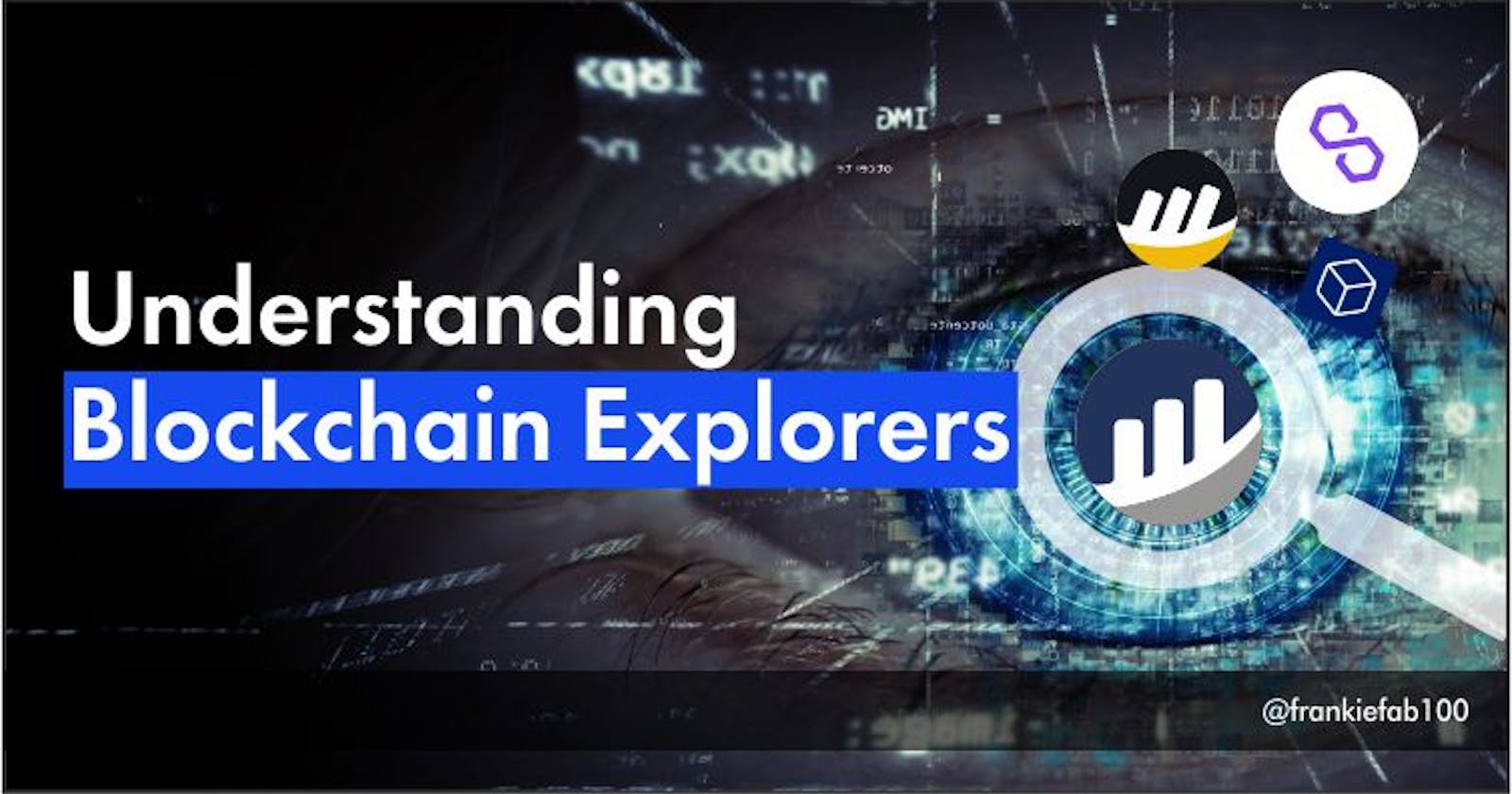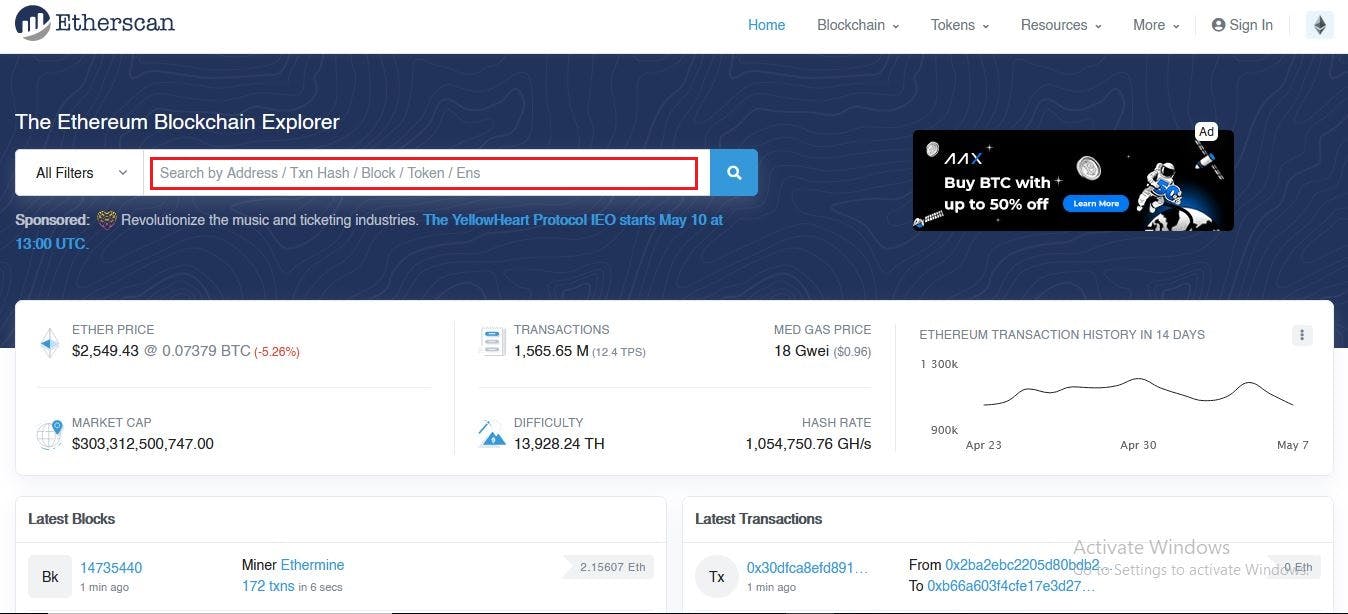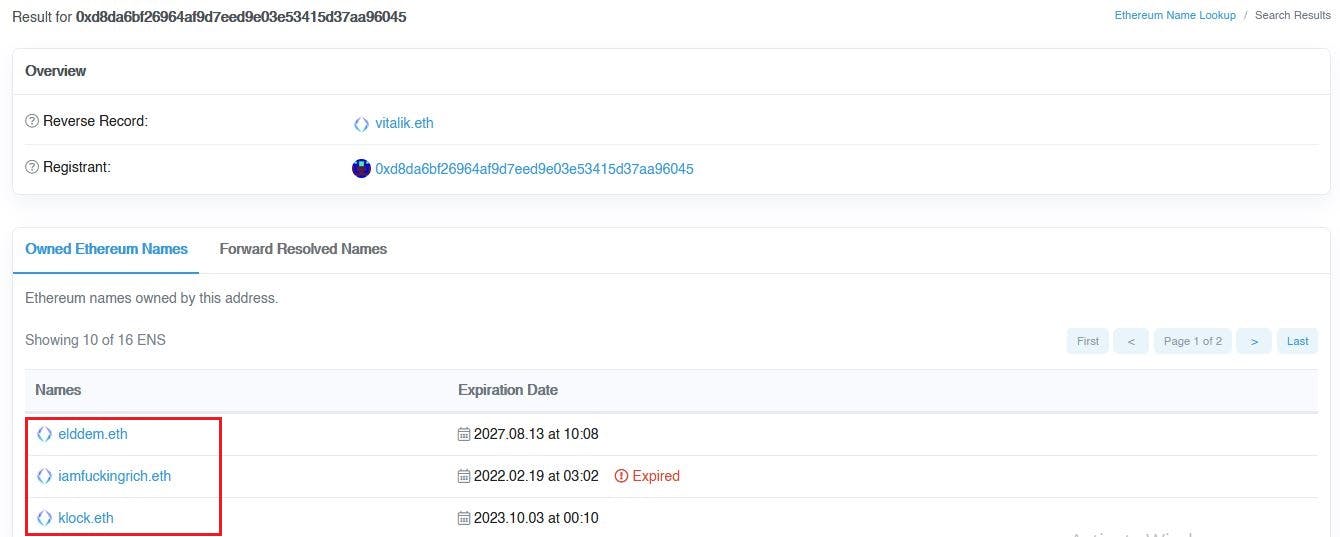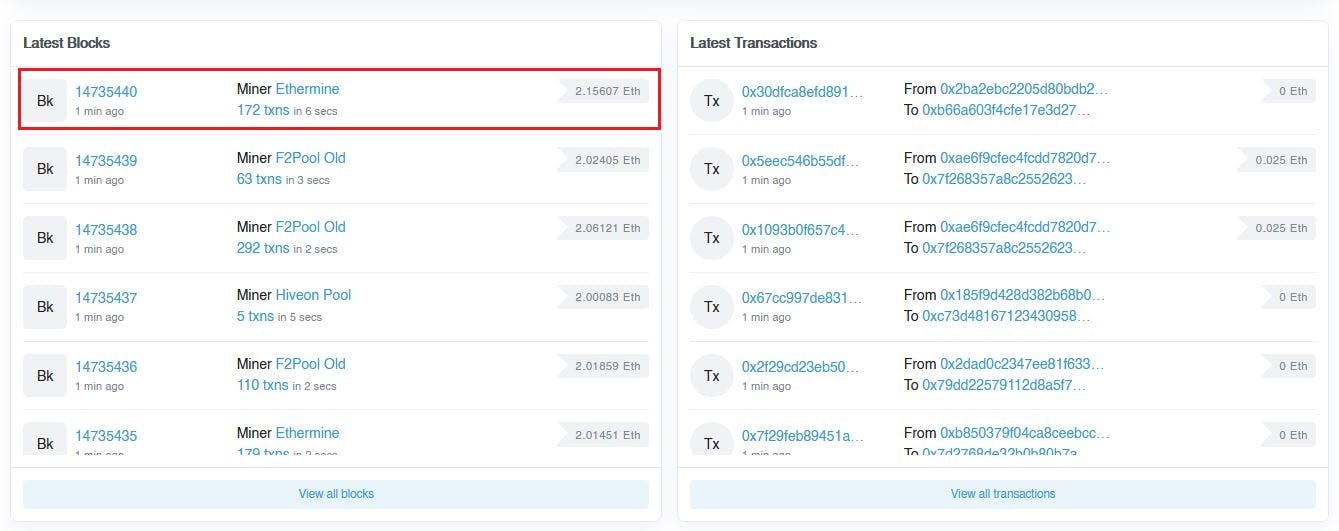Understanding Blockchain Explorers
How to use block explorers to inspect transactions and other relevant information related to a specific wallet address in a blockchain network.
Unlike the traditional banking system where the record of transactions is kept in a physical ledger or issued as a statement of account. Every transaction involving cryptocurrencies, NFTs (Non-Fungible Tokens), or any digital token exists in a decentralized and distributed public ledger known as a Blockchain.
According to Wikipedia;
A bank statement is an official summary of financial transactions occurring within a given period for each bank account held by a person or business with a financial institution.
What is a blockchain explorer?
Blockchain explorers (also known as block explorers) are scanning tools that allow users to access details related to transactions, on specific wallet addresses existing on any blockchain network. They are like blockchain search engines for tracking blocks, wallet address balances, transaction fees, the destination of funds, the status of the transactions, the history of a chain, and more.
What you can do with a blockchain explorer
Here are some of the uses of blockchain explorers:
To examine the history of all transactions and the total balance of a wallet address.
To detect the mining pool of a specific block.
To look up the first block (known as the genesis block) that was mined on a chain.
To track the status of a pending transaction (known as Mempool status).
To explore every block and the miner/validator in the chain.
To look up the largest or smallest transactions.
To ascertain the number of double-spend transactions occurring in a blockchain.
To track the destination of transferred digital tokens such as Cryptocurrency, NFTs, and domain names.
To explore other relevant pieces of information like the most recently mined block, hash rate, mining difficulty, mempool size, nodes, gas fees, and more.
Common Examples of Blockchain Explorers
Blockchain explorers differ based on the cryptocurrency or token, however, some enable one to search multiple blockchains. In this article, I will emphasize the Ethereum block explorer to highlight how the blockchain explorer works in the main network.
This blockchain explorer allows you to view, monitor, and search Bitcoin ownership and wallet balance to track who's who in the world of Bitcoin.
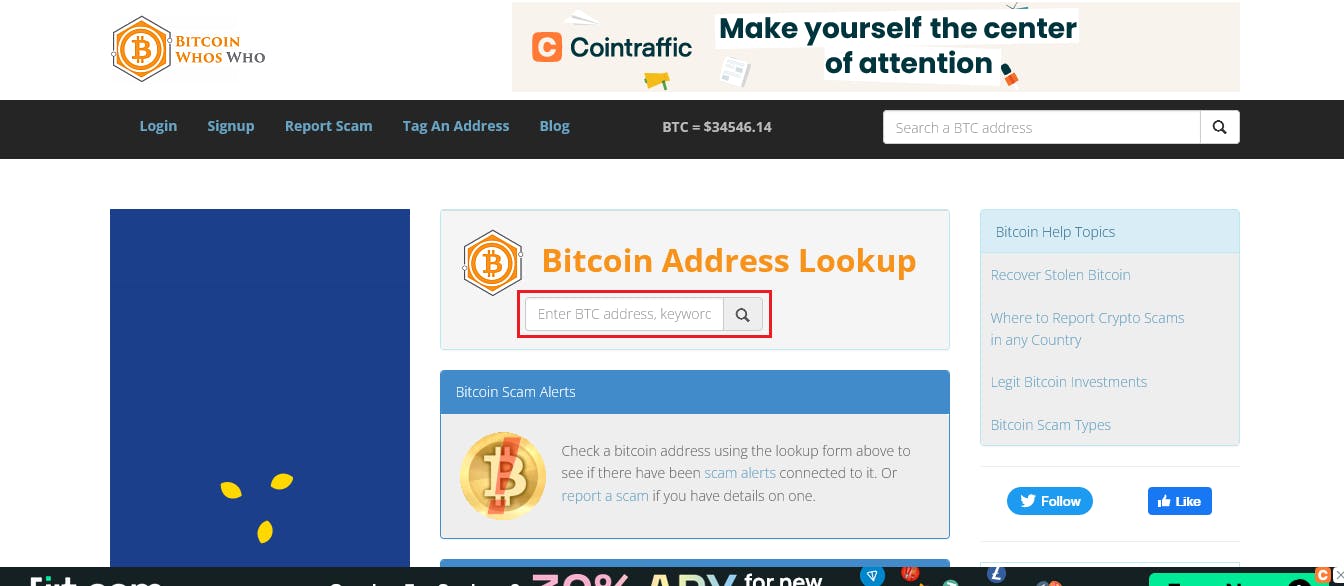
With this blockchain explorer you can;
Find a Bitcoin address owner and check to see if it has been reported as a scam.
Report a bitcoin scammer like an investment scam, or mining scam.
The Bitcoin wallet transaction alerts feature notifies you by email when a bitcoin address has activity on the blockchain.
The screenshot below shows details of the Bitcoin (BTC) address: bc1qf8cedqguh2ucc3fgsphmgt789q9szh35vtl38m
N/B: Most Bitcoin addresses have "bc" as the prefix, this helps distinguish them from other blockchain wallet addresses.
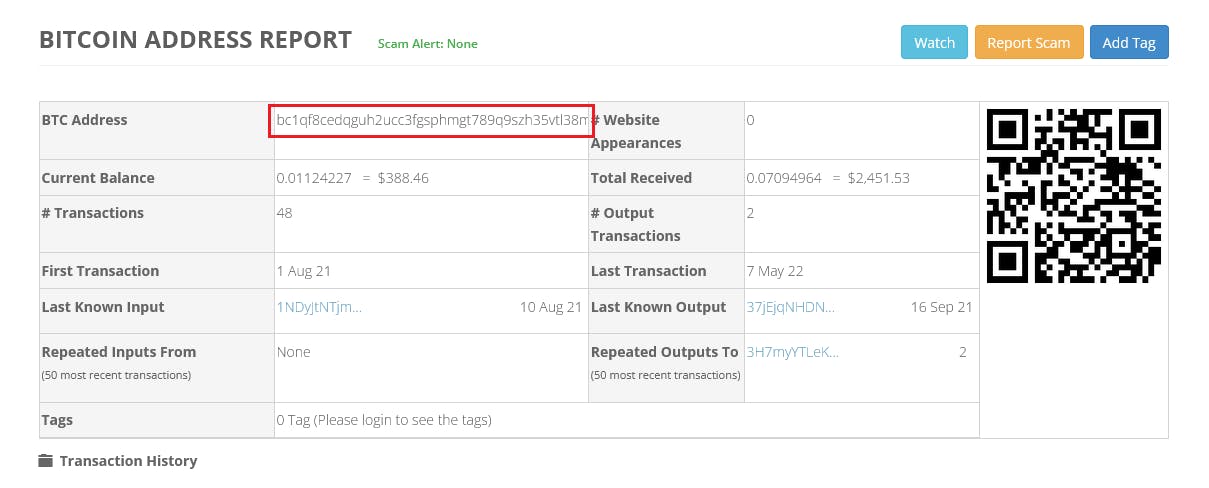
There is a more modern block explorer for Bitcoin, Blockchain.com which enables the user to search multiple chains such as Bitcoin, Ethereum, and Bitcoin Cash.
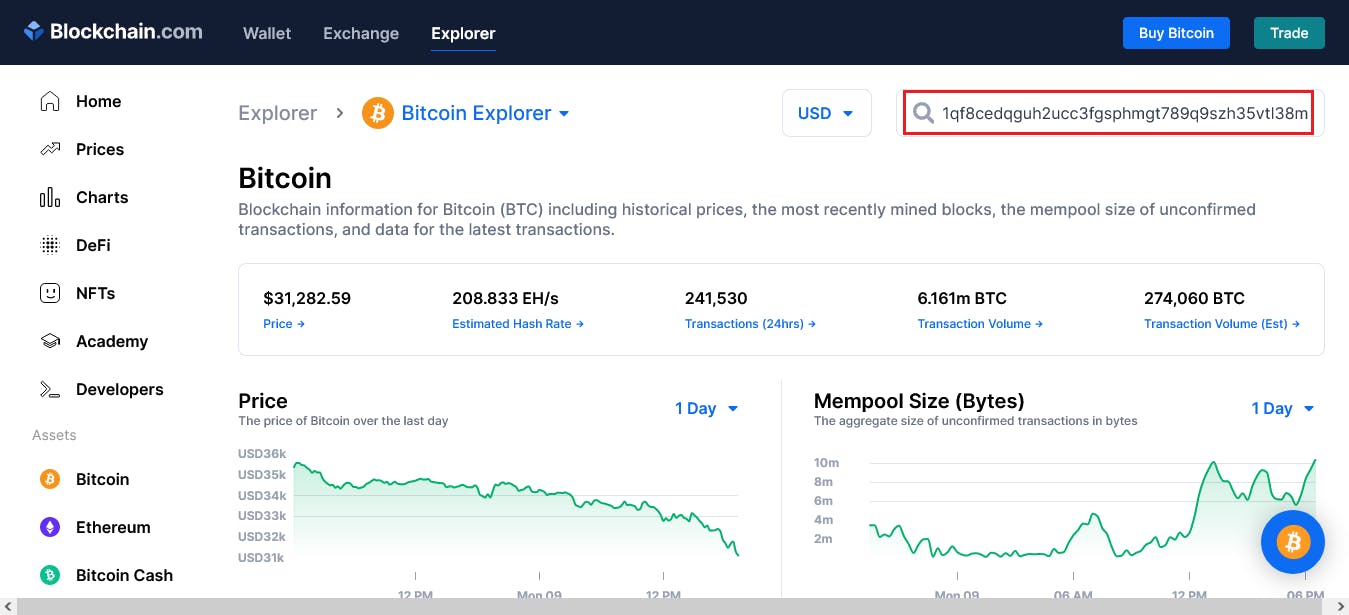
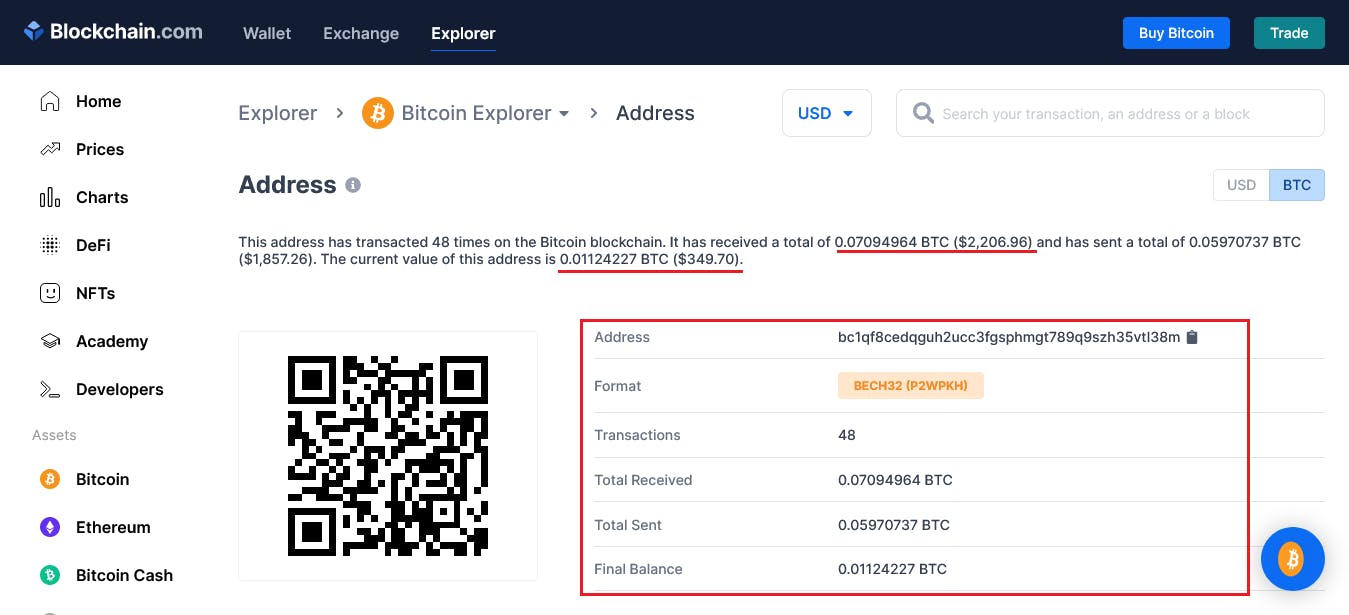
As shown in the screenshot above, this specific BTC address has transacted 48 times on the Bitcoin blockchain. It has received a total of 0.07094964 BTC ($2,195.52) and sent a total of 0.05970737 BTC ($1,847.63). The current value of this address is 0.01124277 BTC ($347.89). The current value of this address is 0.28831935 BTC ($9,959.89).
N/B: This information is valid as of when this screenshot was taken.
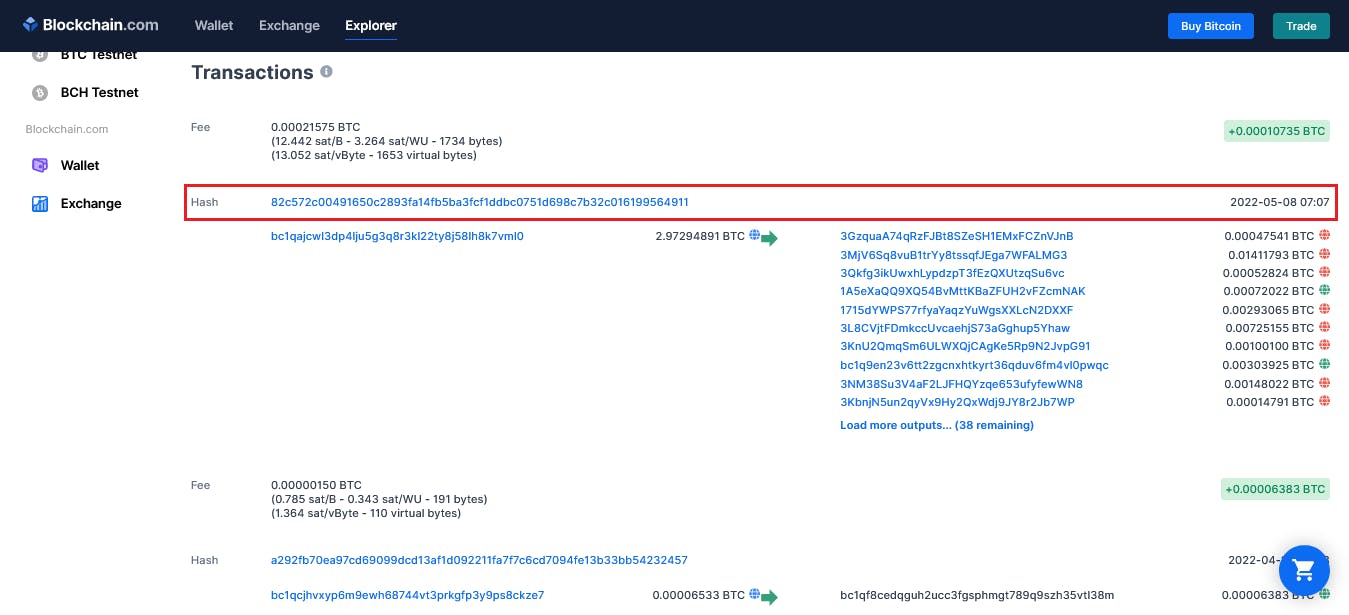
2. Etherscan
Etherscan is a block explorer and analytics platform for Ethereum, a decentralized smart contracts platform. It allows users to conduct searches for ETH addresses, wallet balances, transactions, smart contracts, and more.
Ethereum (ETH) addresses can also be identified with the "0x" prefix. You can easily look up an Ethereum address using the ENS if there's an existing one. Here, I will be demonstrating how to track an ETH address using the ENS domain name of the Co-founder of Ethereum Blockchain (vitalik.eth), which maps to the hard-to-read hexadecimal address - 0xd8da6bf26964af9d7eed9e03e53415d37aa96045
To look up this ETH address via the ENS domain, enter it in the search bar.
A brief overview of this address shows;
Balance: The total balance of about 5,717 Ether.
EtherValue: This is calculated by multiplying the balance by the current price of one ETH. Here, the Ether value is worth $13,492,754 (at the cost of $2,359.94 per ETH).
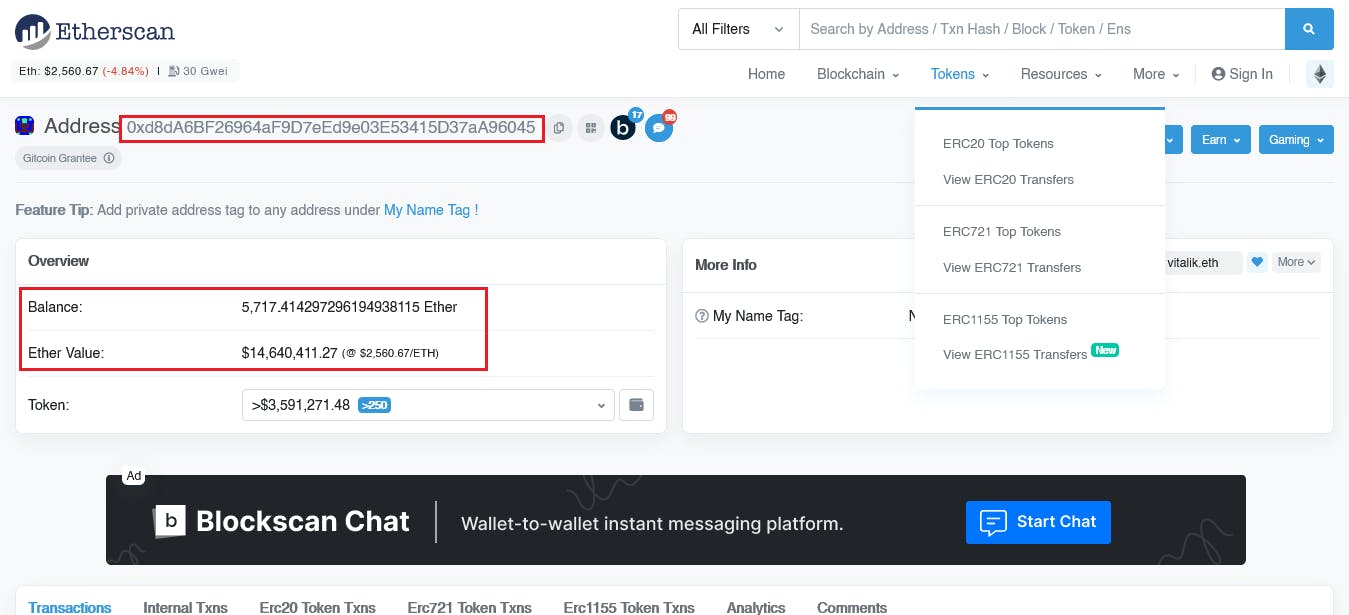
Transaction details related to this wallet address can be printed as well like a bank statement in PDF format.
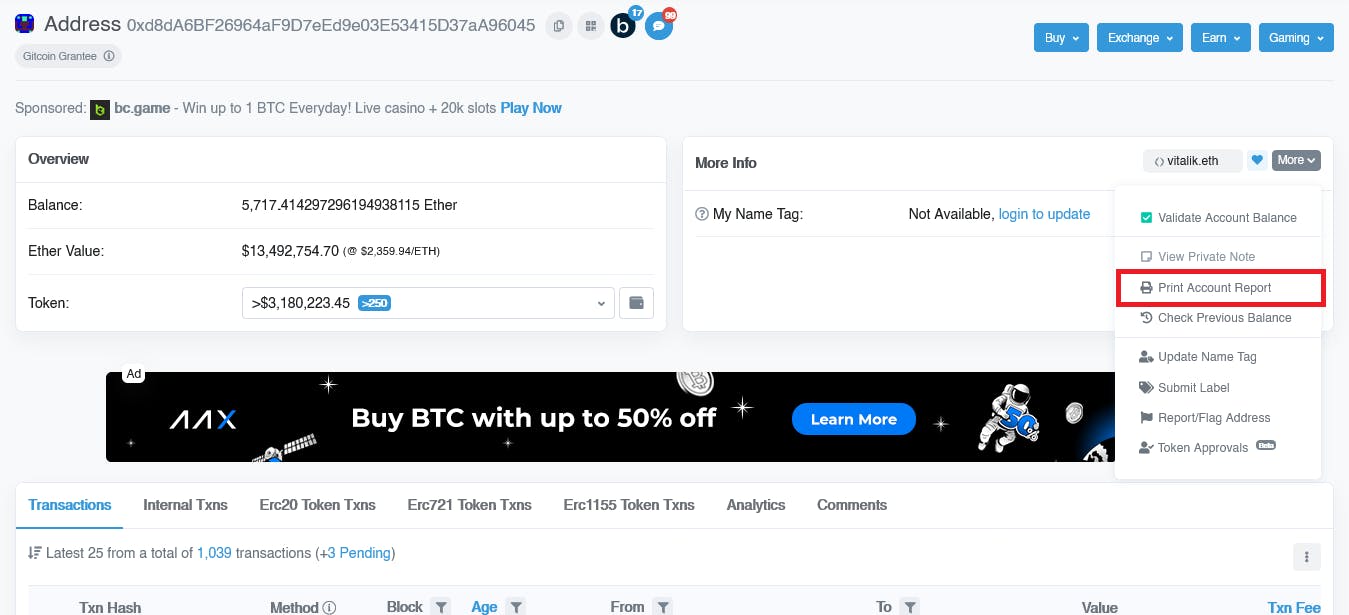
As indicated below, the ENS (Ethereum Naming System) username vitalik.eth directs to the wallet address 0xd8da6bf26964af9d7eed9e03e53415d37aa96045 . This can be compared to a DNS (Domain Name System) of a web page that redirects its IP Address to a human-readable URL.
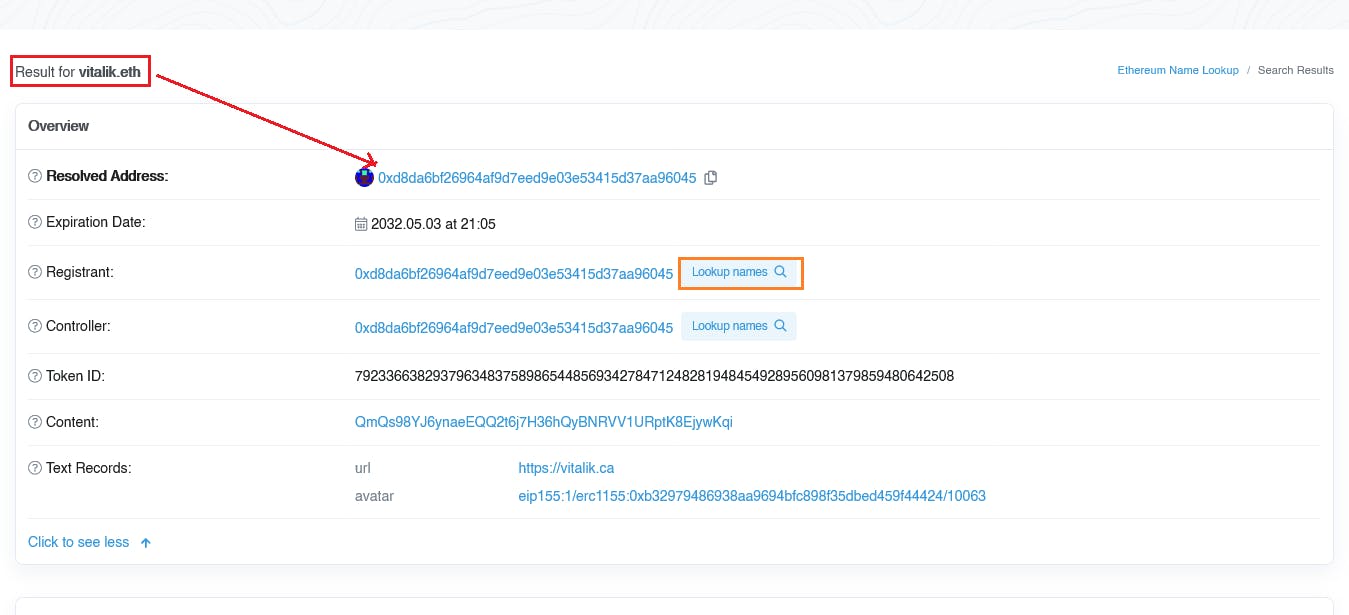
Related Transactions also appear below this given section. See the screenshot below:
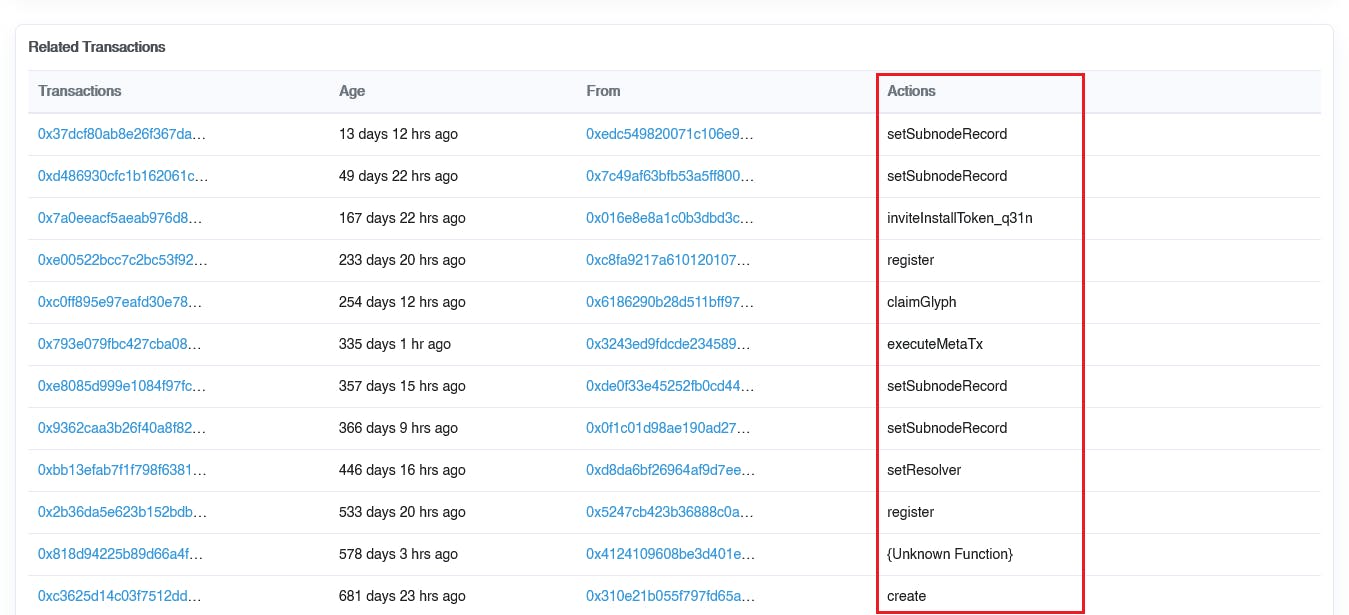
vitalik.eth is a registrant of other ENS names categorized as Owned Ethereum Names which includes elddem.eth, legendgames.eth, iamfuckingrich.eth, klock.eth, vitalik-buterin.eth, denarius.eth, vbuterin.eth, vitalik.eth, publicgod.eth, denarii.eth and also happybirthdayvitalik.eth, skynft.eth, carsen.eth, satoshichained.eth and theowen.eth as you navigate to the corresponding page. See screenshot:
The ENS domain, for example, iamfuckingrich.eth expired on 19th February 2022. This entails anyone can register this domain to claim ownership away from the former registrant. The same applies to every expired domain that wasn't renewed.
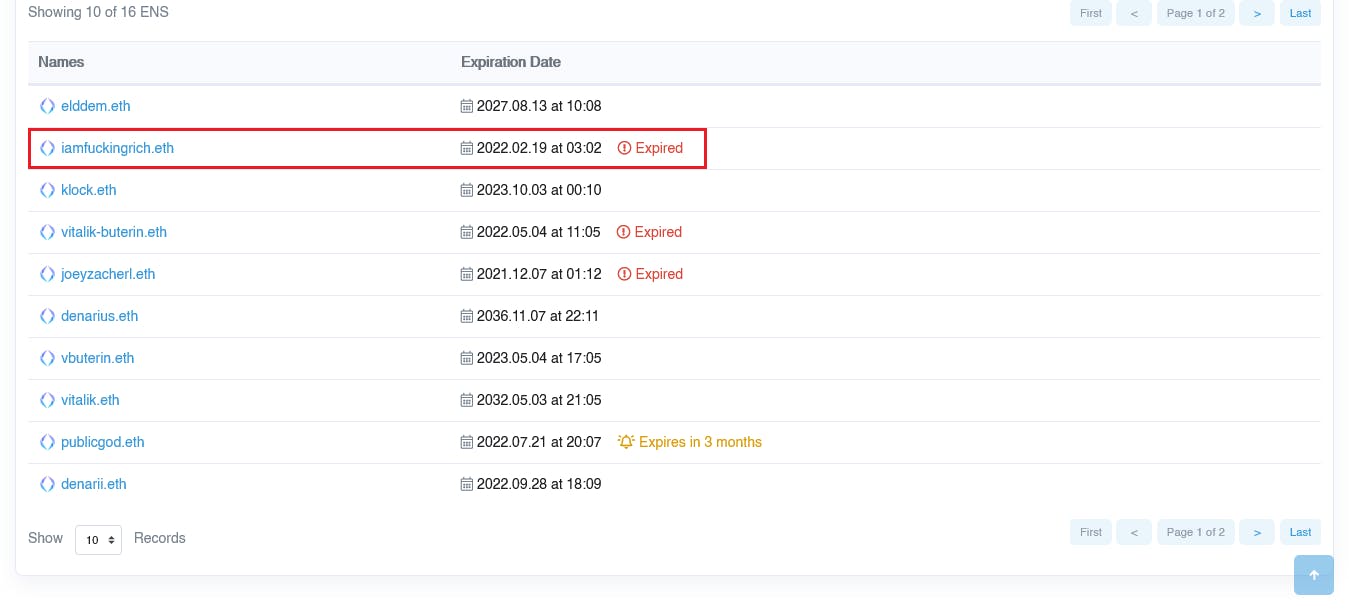
The Latest Block and Transactions can be explored as well. As of when the screenshot was taken, the Lastest Block was Block 14735440, resolved through a consensus mechanism by Ethermine miner, and the reward for mining this transaction (block) was 2.15607 ETH.
From the Transaction section, the highlighted fifth transaction indicates that 500 Ether was transferred from vitalik.eth (0xd8da6bf26964af9d7eed9e03e53415d37aa96045) to another Ethereum address (0x517...) which was validated and processed at the cost of 0.022103 ETH. You can also click on the recipient wallet address to verify how 500 ETH was spent.
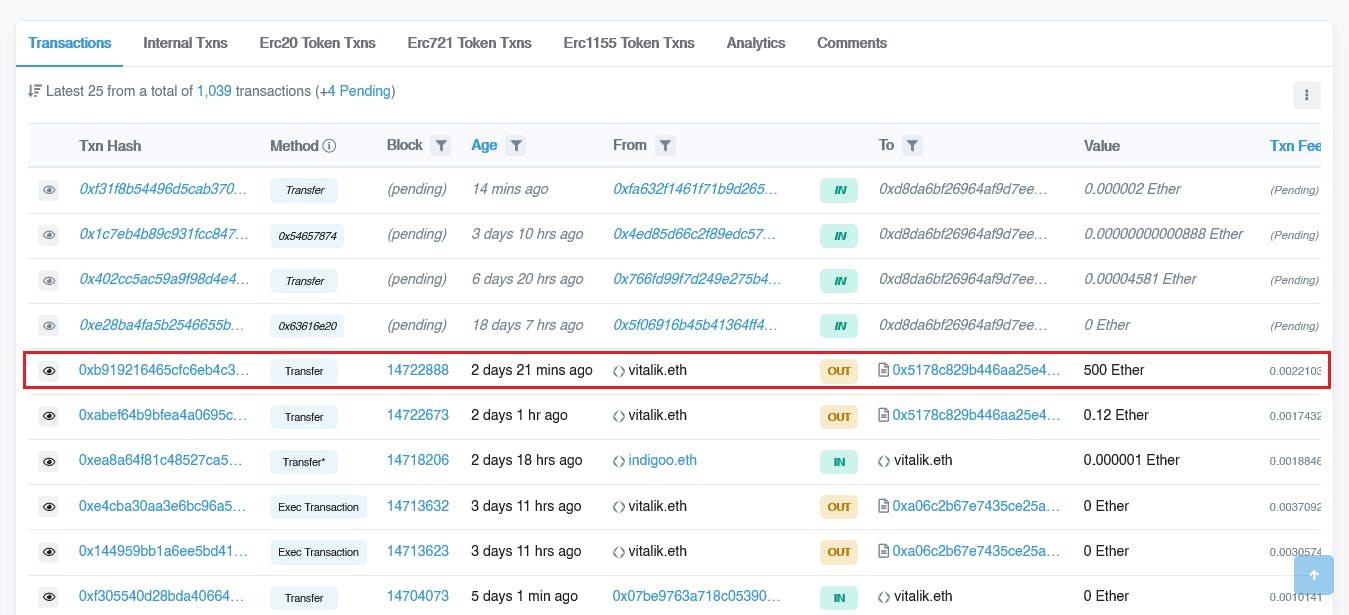
Below is a more in-depth detail of the fifth transaction as indicated in the previous snapshot:
Transaction Hash: A unique identifier given to every verified transaction that gets added to the blockchain.
Status: The state of a transaction, if it was successful or not.
Block: A data structure where transactions are permanently recorded in a blockchain.
Timestamp: The date and time of a processed transaction in a blockchain network.
From: The sender's wallet address.
To: The recipient's wallet address.
Value: The amount of Ether transacted/transferred.
Transaction Fee: The amount of Ether spent to reward the miner of a transaction.
Gas Price: The amount of Ether that must be paid to miners for processing transactions in a blockchain.
Ether Price: The current price/value in the cryptocurrency market.
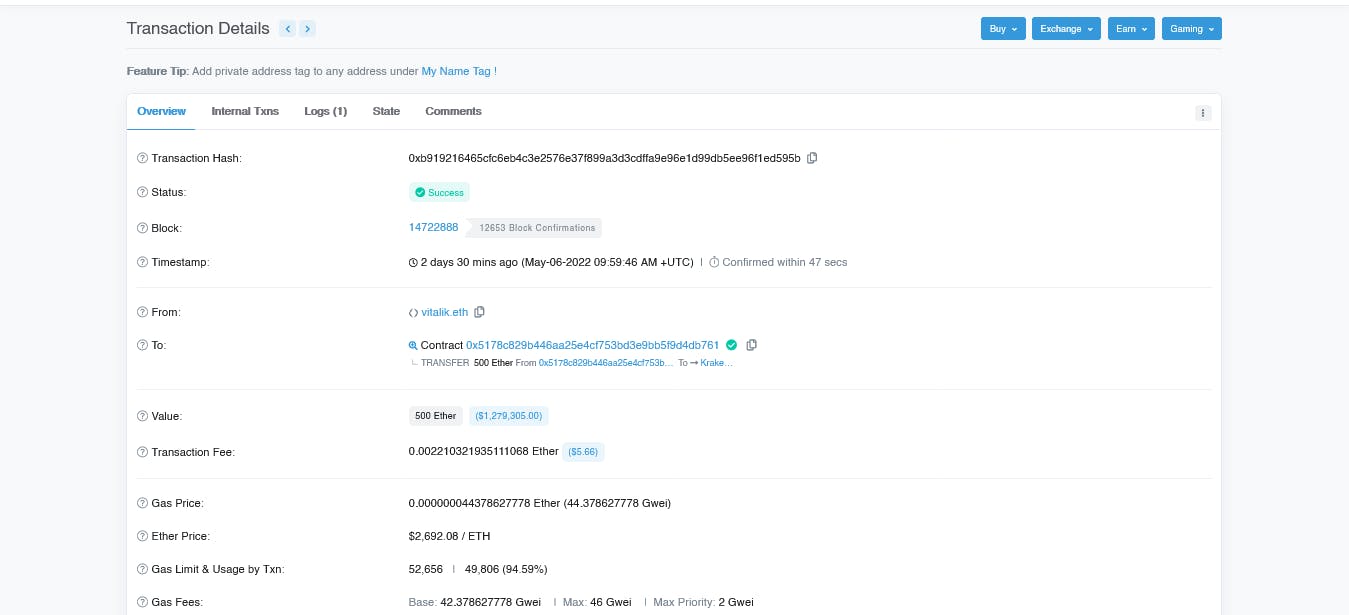
Internal Transactions (Internal Txns)
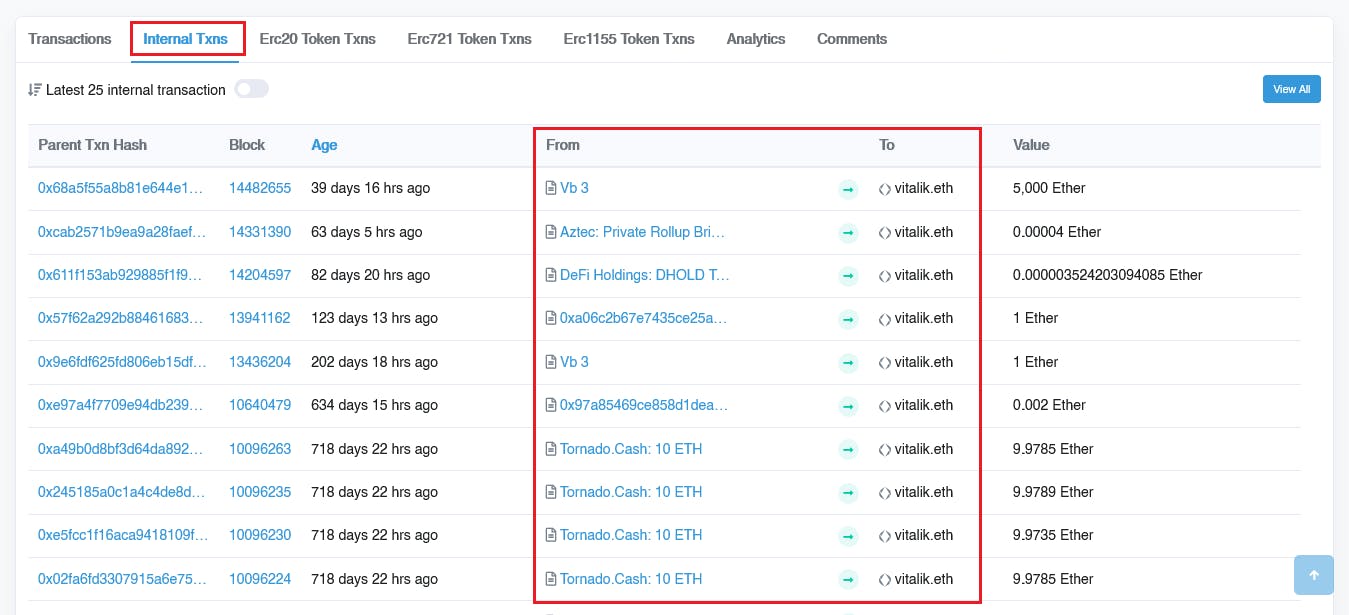
ERC-20 Transactions
This tab shows tokens implemented as non-unique value and fungible assets in a smart contract i.e Ether or any ERC-20 cryptocurrency.
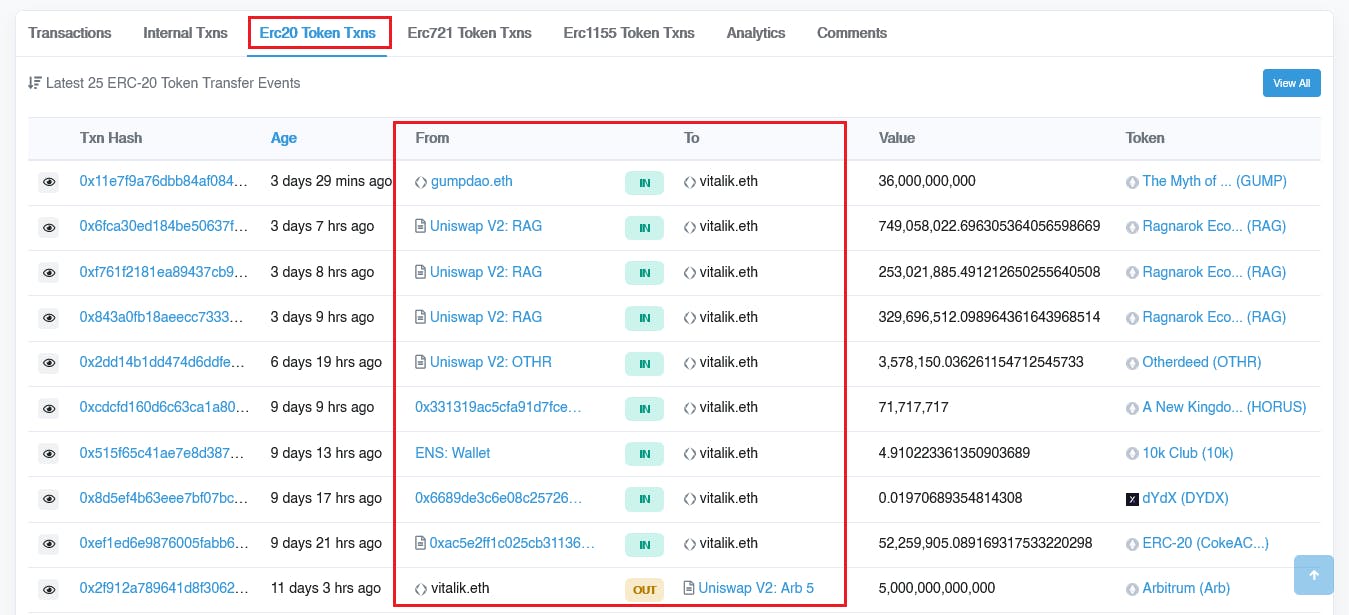
ERC-721 Transactions section tracks transactions of non-fungible tokens i.e NFTs.
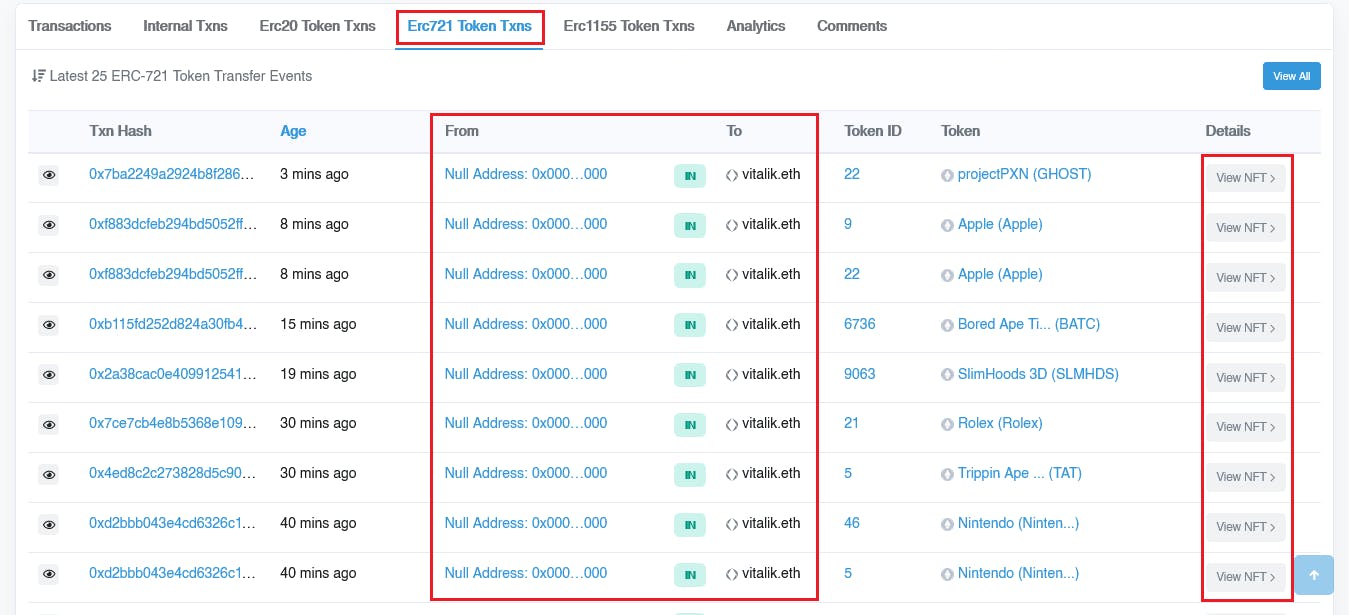
ERC-1155 Transactions section tracks transactions involving fungible, semi-fungible, and non-fungible tokens, specifically gaming assets. As highlighted, vitalik.eth interacted with a popular NFT marketplace known as Opensea.
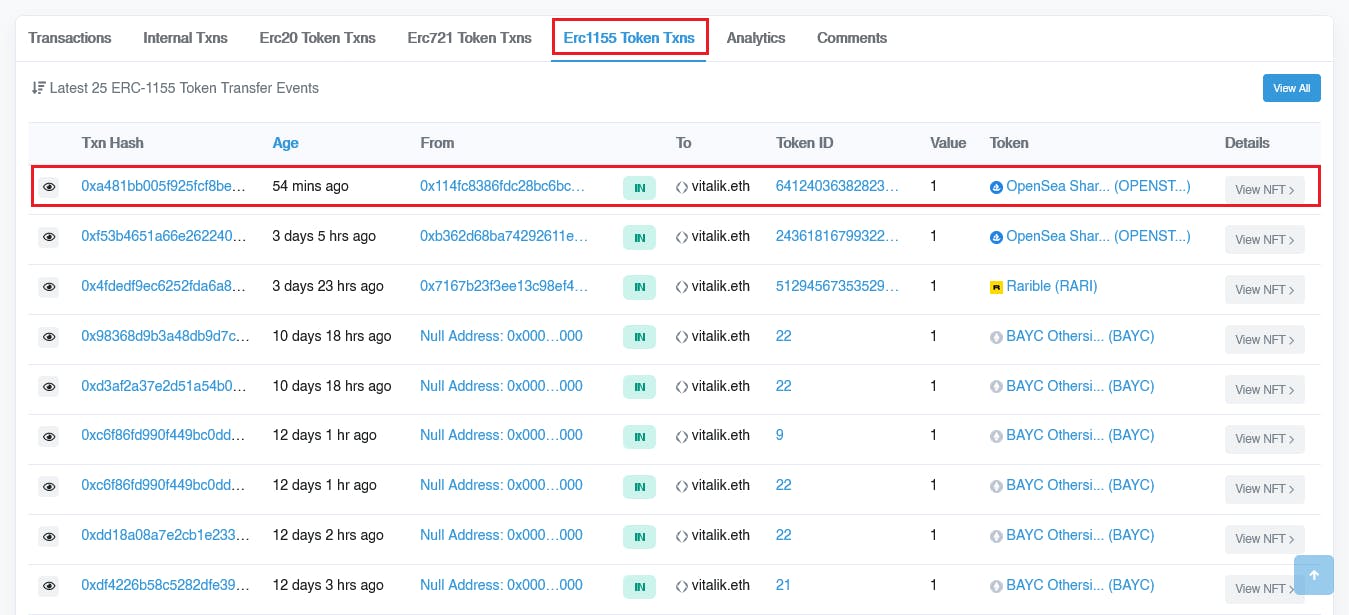
Analytics - shows key metrics of the Ethereum address, such as the highest or lowest balance, the amount spent on gas as a sender, recipient, and more.
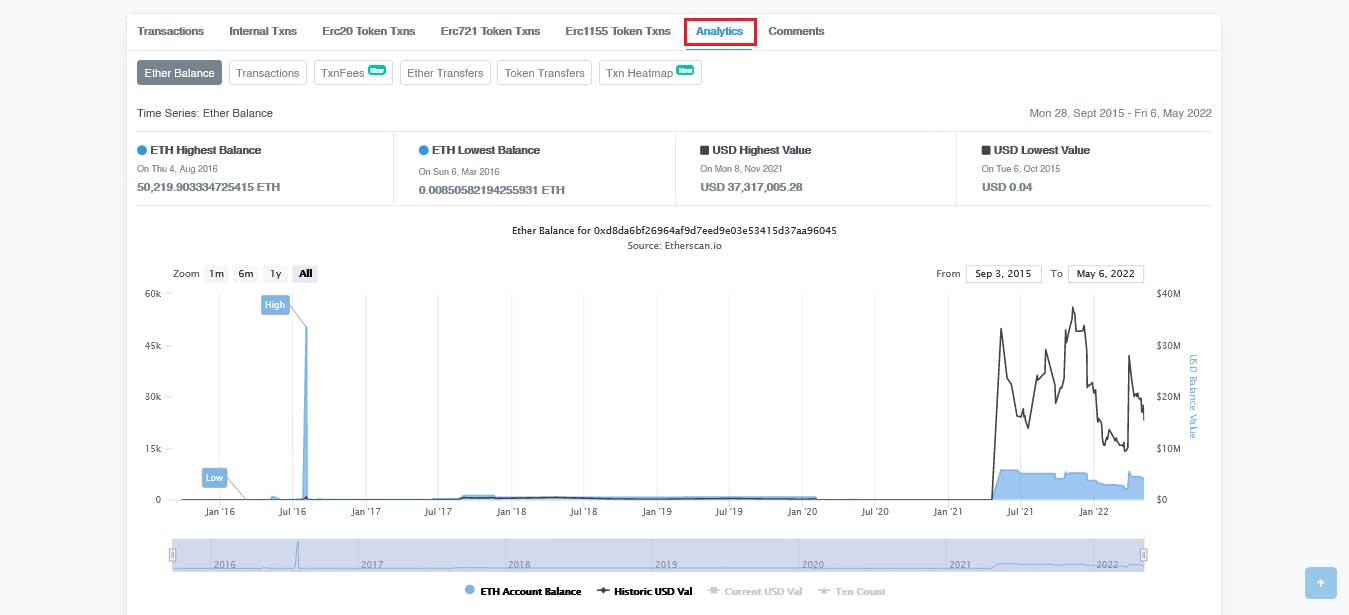
Comments - In this section, you can drop a question or review but please avoid spamming or pasting your wallet address here.
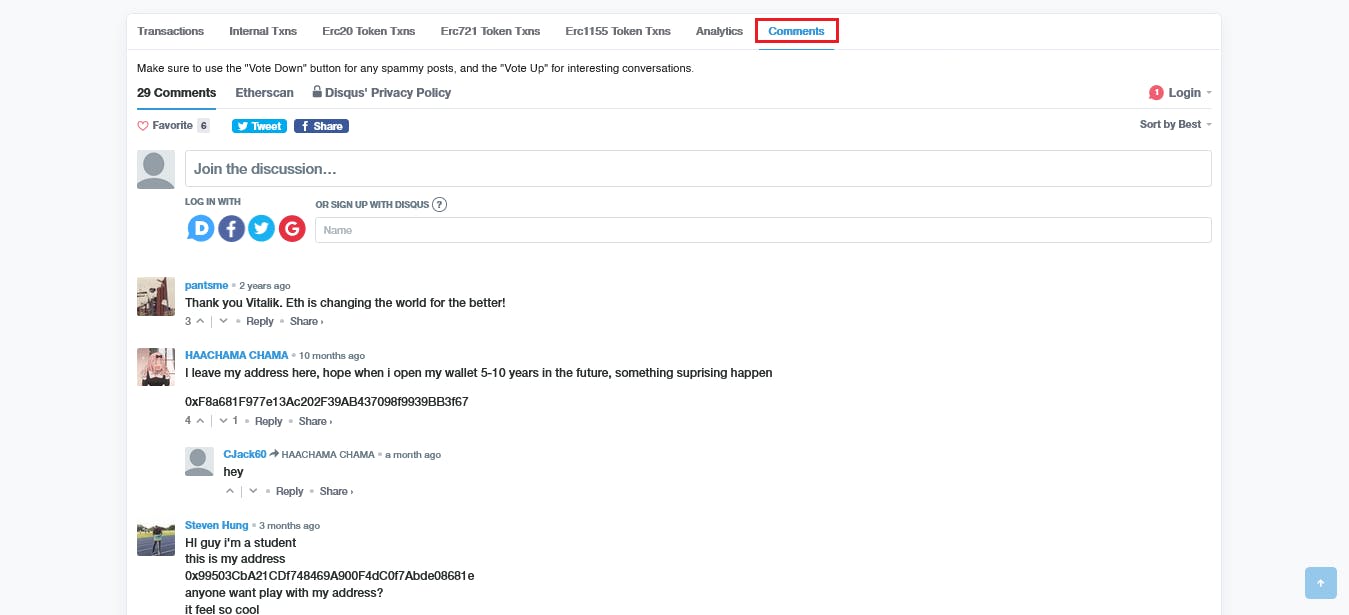
3. Polygonscan
PolygonScan allows you to explore and search the Polygon blockchain for transactions, addresses, tokens, prices, and other activities taking place on Polygon.
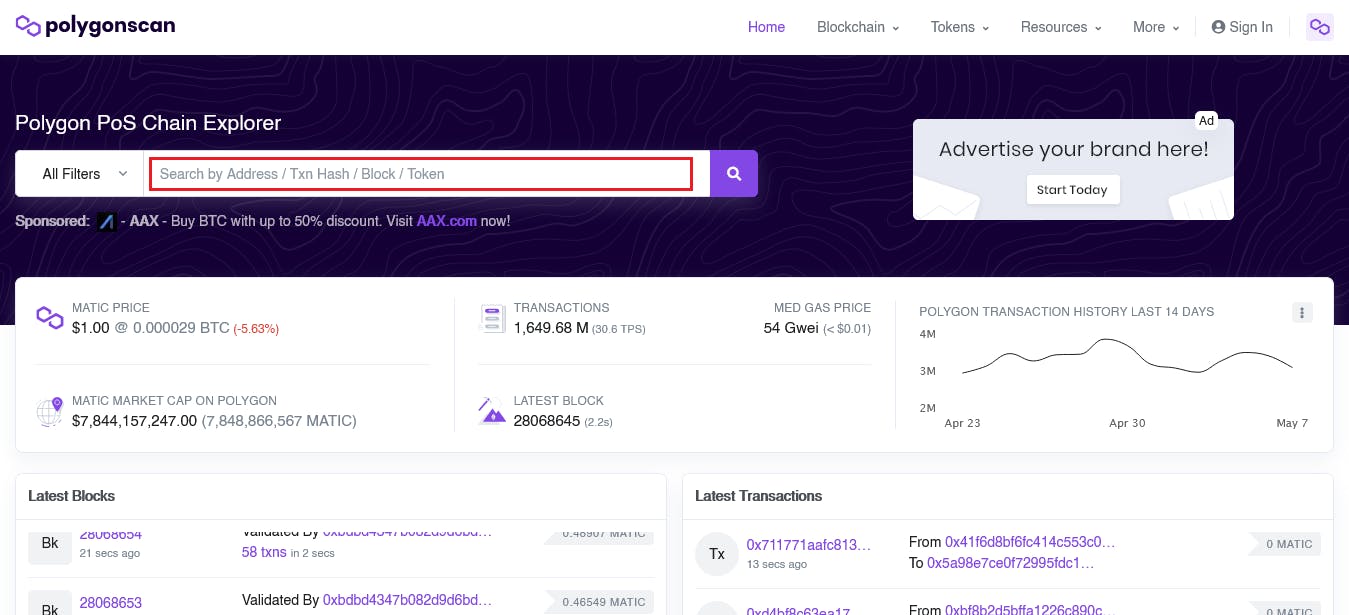
4. FTMScan
Fantom (FTM) Blockchain Explorer allows you to explore and search the Fantom blockchain for transactions, addresses, tokens, prices, and other activities taking place on Fantom (FTM).
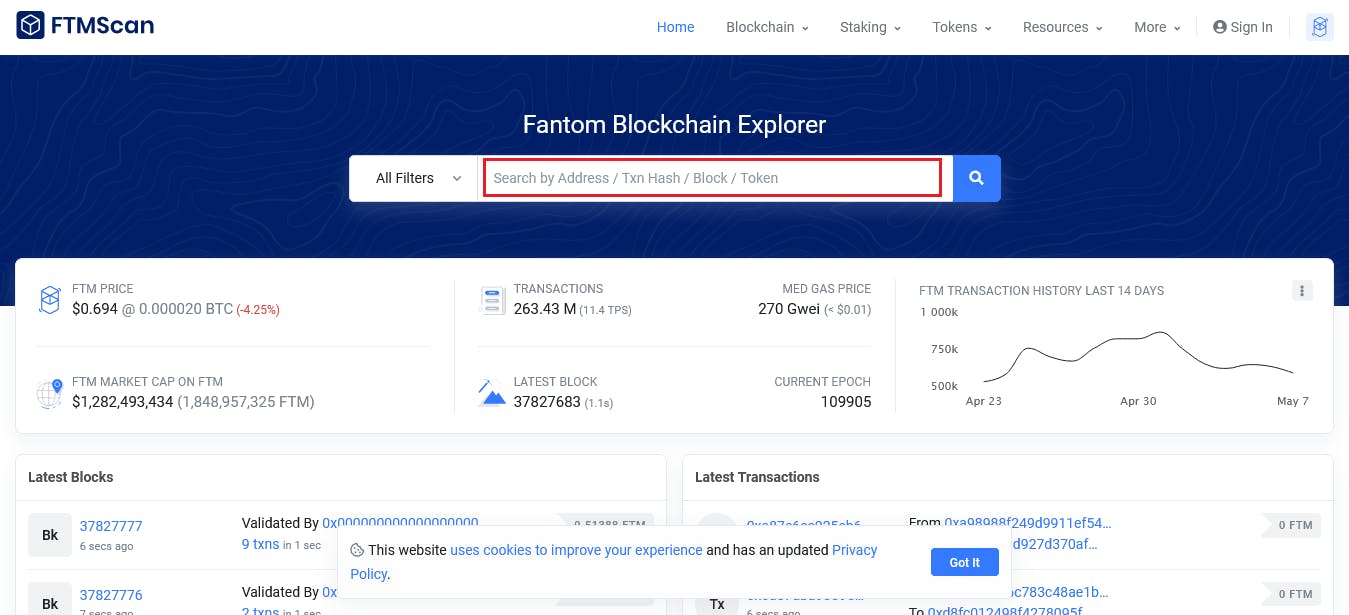
5. BscScan
Binance Smart Chain Blockchain Explorer allows you to explore and search the Binance blockchain for transactions, addresses, tokens, prices, and other activities taking place on Binance.
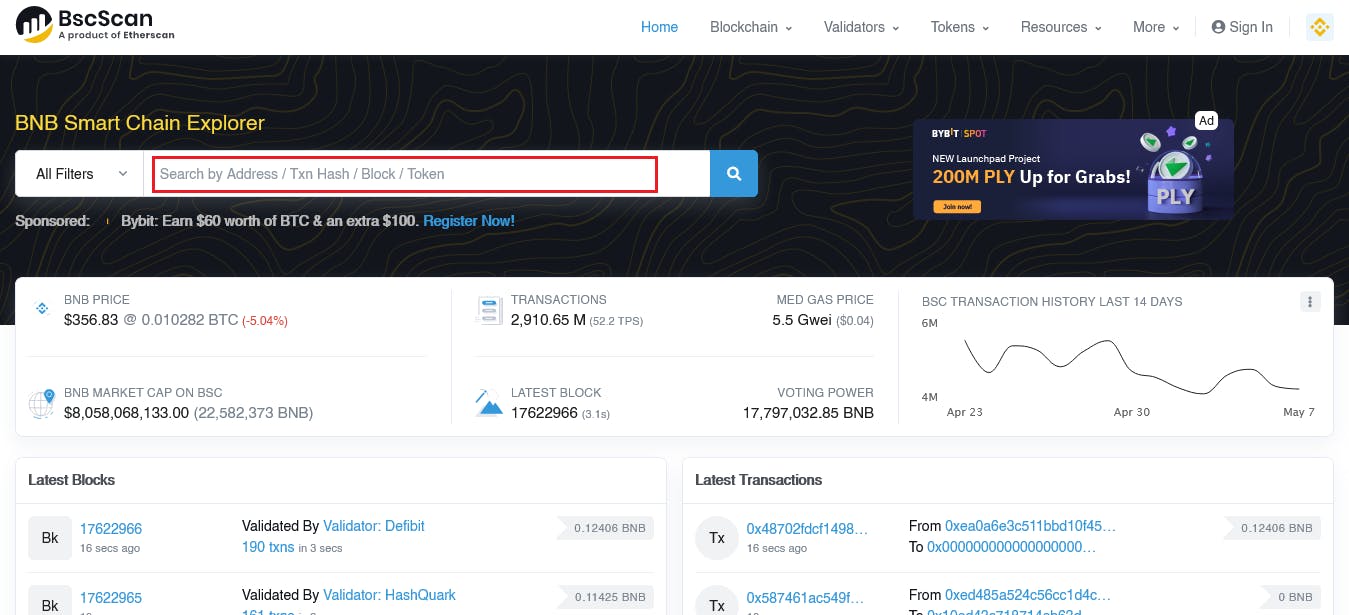
6. Solscan
This is a block explorer for the Solana Ecosystem for tracking Solana and Solana-related tokens to get transaction information.
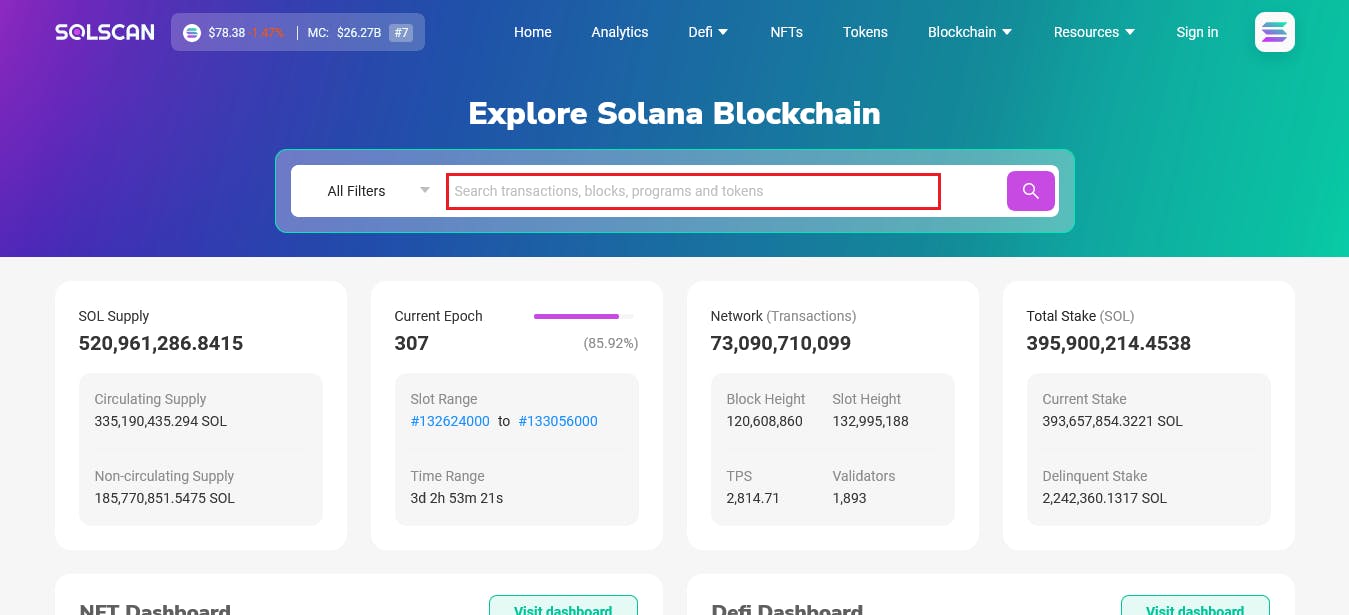
Final Thoughts
Just like a Blockchain explorer, bank statements are usually used to monitor cash flow, check for possible fraudulent transactions, etc. This is not true in all scenarios, for instance, physical cash expenditures like buying an item, gifting someone cash, or paying for a service, can't be accounted for in the future because there is no record of these transactions. However, blockchain explorers have records of every transaction stored permanently, immutable, and not prone to errors compared to bank statements. It is also worth noting that, there are similarities amongst these blockchain explorers, so you can easily use any, once you have a mental model of the user interface and features of each one.

